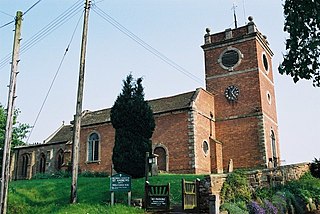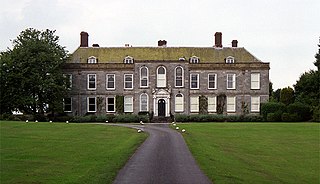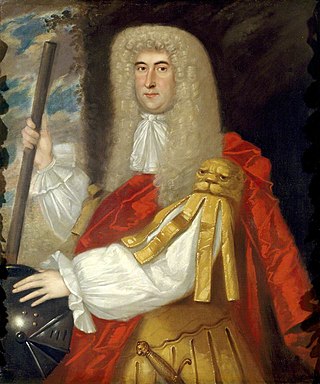
Quatt is a small village in Shropshire, England in the Severn Valley. The civil parish, formally known as Quatt Malvern, has a population of 219 according to the 2001 census, reducing to 200 at the 2011 census.
There is the homophone name John Gray. John Grey may refer to:
Bridgnorth was a parliamentary borough in Shropshire which was represented in the House of Commons of England from 1295 until 1707, then in the House of Commons of Great Britain until 1800, and in the House of Commons of the Parliament of the United Kingdom from 1801 until its abolition in 1885.

Sir Edward Acton, 1st Baronet was an English MP for Bridgnorth and High Sheriff of Shropshire, who supported Royalist cause during the English Civil War.
John Hayward may refer to:

Dudmaston Hall is a 17th-century country house in the care of the National Trust in the Severn Valley, Shropshire, England.
Bridgnorth Endowed School is a coeducational secondary school with academy status, located in the market town of Bridgnorth in the rural county of Shropshire, England. Founded in 1503, The Endowed School is a state school and is a specialist Technology College. The age range of the school is 11–18 years. It was previously known as the Bridgnorth Grammar School, and the school celebrated the 500th anniversary of its foundation in 2003. Former pupils include Professor Peter Bullock, the inspirational soil scientist who was a member of the Intergovernmental Panel on Climate Change (IPCC).

Sir Richard Myddelton, 3rd Baronet, of Chirk Castle, Denbighshire, was a Welsh landowner and Tory politician who sat in the House of Commons from 1685 to 1716.

Thomas Whitmore was an English Whig politician who sat in the House of Commons from 1806 to 1831.
Henry Whitmore was an English Conservative politician who sat in the House of Commons between 1852 and 1870.

Sir Thomas Whitmore, 1st Baronet was an English politician who sat in the House of Commons of England between 1640 and 1644. He supported the Royalist side in the English Civil War.

Sir William Whitmore, 2nd Baronet was an English politician who sat in the House of Commons from 1661 to 1699.
Thomas Whitmore was an English lawyer and politician who sat in the House of Commons from 1659.

Sir William Whitmore was an English landowner and politician who sat in the House of Commons at various times between 1621 and 1626.
John Bennet was an English landowner and politician who sat in the House of Commons from 1660 to 1663.
William Whitmore may refer to:

John Wolryche (c.1637–1685) was a lawyer and politician of landed gentry background who represented Much Wenlock in the House of Commons of England in two parliaments of Charles II. He was a moderate Whig, opposing the succession of James II but avoiding involvement in conspiracies.
Thomas Whitmore, was a British soldier and politician who sat in the House of Commons for 24 years from 1771 to 1795.
John Weaver (1675–1747), of Morville, near Bridgnorth, Shropshire, was a British lawyer and Whig politician who sat in the House of Commons from 1713 to 1734.
Sir Thomas Whitmore of Apley, near Bridgnorth, Shropshire, was a British Whig politician who sat in the House of Commons from 1734 to 1754.
This page is based on this
Wikipedia article Text is available under the
CC BY-SA 4.0 license; additional terms may apply.
Images, videos and audio are available under their respective licenses.





